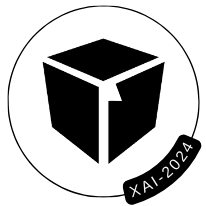The Peer-Review process
All articles submitted within the deadlines and per the guidelines will be subjected to a single-blind review. Authors can also opt-out to disclose their names. However, authors will not know the names of their reviewers. Papers that are out of scope, incomplete, or lack sufficient evidence to support the basic claims may be rejected without full review. Manuscripts that do not conform to the specified formatting style will be desk-rejected. A non-dual policy submission exists, and articles submitted parallel to another conference/journal will be desk-rejected. Furthermore, reviewers will be asked to comment on whether the length is appropriate for the contribution. Each submitted article will be reviewed by at least two appropriate committee members (main/special track programme committee, late-breaking work/demo/DC committee).
After completion of the review process, the authors will be informed about the acceptance or rejection of the submitted work. The reviewers’ comments will be available to the authors if they are not desk-rejected. In case of acceptance, authors must meet the recommendations for improvement and prepare and submit the definitive version of the work up to the camera-ready paper submission deadline. In case of failure to consider the recommendations made by the reviewers, the organizing committee, the chairs and the editors reserve the right not to include these works in any of the planned conference proceedings.
The article’s final version must follow the appropriate style guide and contain the authors’ data (names, institutions and emails) and the ORCID details. Submitted articles will be evaluated according to their originality, technical soundness, significance of findings, contribution to knowledge, clarity of exposition and organisation and replicability.
Code of Ethics
Inspired by the code of ethics put forward by the Association of Computing Machinery, the programme committee, supervised by the general conference chairs and organisers, has the right to desk-reject manuscripts that perpetuate harmful stereotypes, employ unethical research practices, or uncritically present outcomes or implications that disadvantage minoritized communities. Further, reviewers of the scientific committee will be explicitly asked to consider whether the research was conducted in compliance with professional, ethical standards and applicable regulatory guidelines. Failure to do so could lead to a desk rejection.

